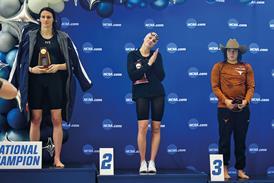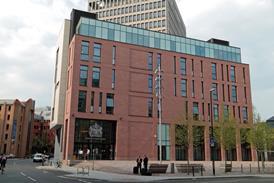Lawyers have stressed that the illegality principle in civil claims remains intact despite the Supreme Court finding in favour of a mortgage fraudster in a dispute with a law firm.
In Stoffel & Co v Grondona justices ruled unanimously last week that a negligence claim against Kent-based Stoffel & Co should not be barred by the illegality defence, despite revelations that the former client had procured a mortgage advance by fraud.
In the Court of Appeal, Lady Justice Gloster concluded there was no doubt that Kent-based Stoffel & Co had failed to register in Maria Grondona’s favour a Land Registry transfer document form.
The case largely centred on the application of the Supreme Court decision in Patel v Mirza, and the principle that no court should aid someone who founds their case upon an immoral or illegal act.
Giving the lead judgment, Lord Lloyd-Jones said the illegality defence should not be permitted where it would result in an ‘incoherent contradiction damaging to the integrity of the legal system’.
This was not a case, he said, of the court assisting a wrongdoer to profit from her own wrongdoing. Even if Grondona could be considered to have ‘got something’ out of her fraudulent transaction, her claim for breach of duty against her solicitors was ‘conceptually entirely separate’ from her fraud. It was not a necessary step in the fraud and took place after the fraud was complete.
He added that solicitors should appreciate they should be ‘alive to, and question’ potential irregularities in any particular transaction. To deny the claim would be inconsistent with the policy that the victims of solicitors’ negligence should be compensated for their loss, and would be a disincentive to solicitors to carry out their duties diligently.
Lawyers reflecting on the judgment indicated that the court has not ruled out the possibility of using the illegality defence in some circumstances.
Laura Stocks, senior associate with City firm RPC, said there will be instances where a fraud is more closely connected with the alleged negligence, or where the lawyers were engaged through fraudulent activity. ‘This decision does not lay down any principle that tainted claims can be enforced against professionals,’ she added.
Helen Smith and John Bennett, of international firm DWF, said that at face value the Supreme Court’s ruling seems surprising. But he added: ‘[The] decision shows that a court is willing to consider much broader implications when considering whether a claim should be barred by reason of illegality.
‘The court’s focus is now much more on how inconsistency can be avoided in order to maintain the integrity of the legal system.’

















![David Lester (senior partner at Blythe Liggins), Darryl Barnes, Jagdeep Sandher (head of dispute resolution at Blythe Liggins)[4]](https://d1d8vslyhr7rdg.cloudfront.net/Pictures/274x183/4/2/8/116428_davidlesterseniorpartneratblytheligginsdarrylbarnesjagdeepsandherheadofdisputeresolutionatblytheliggins4_981603_crop.jpg)






9 Readers' comments